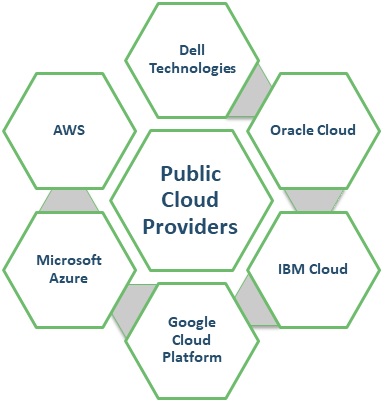Introduction: –
In this ongoing era of digitalization, businesses are producing and exchanging large volumes of information within production loop and with increase in the trend of lead generation through customer database. A huge responsibility of managing the bulk data is laid on the business organizations and keeping such database on a proprietary hard drive or local storage drive becomes difficult. Due to such difficulties that the organization faces, the security and proper documentation is not feasible and may cause loss or corruption of data.
But with the enhanced technology, cloud based storage has grown increasingly popular among businesses and individuals who need larger storage space and also seeking an efficient off- site data backup solutions. There are also multiple options through which the cloud computing can be adopted. One of such option is the public cloud. Public clouds are owned and operated by third party service provider which offer the businesses a pay-as-you-go model.
Dominant Features: –
1. Global reach – Compared to other options, the public cloud providers have a larger global network enabling users to deploy applications and services in various geographic regions and reach for a global audience.
2. Cost efficiency – the top factor that makes business and individuals choose public cloud as their option is because of the pay-as-you-go offers reducing capital expenditure.
3. Scalability– Public cloud allows for rapid scaling of resources up or down based on demand, ensuring that you have the right amount of resources at any given time without overprovisioning.
4. Automatic updates and Maintenance– The responsibility of updates and maintenance is upon the service provider ensuring that users have latest and secure versions without any additional hassle on the user.
5. Resource Optimization– Public cloud providers optimize resource utilization across their infrastructure, ensuring efficient use of computing resources and reducing energy consumption, which is environmentally friendly.
6. Flexibility and Agility – Public clouds offer a wide range of services and solutions to cater to diverse business needs, including computing power, storage, databases, machine learning, analytics, and more.
7. Server Redundancy – In case of server downtime, in public cloud the applications automatically falls into another server due to multi-tenant feature.
Top Public Cloud Providers in the market:

Conclusion: –
The public cloud is an influential force in technology, providing a wide range of benefits that have changed how people and organizations approach computing, data management, and application development.
It will remain a crucial component of corporate plans as they develop and adjust to the demands of the digital age, enabling them to innovate, scale, and prosper in a more cutthroat environment. The public cloud’s value proposition will probably continue to grow as a result of ongoing developments, making it an even more crucial tool for businesses all over the world and a dominant infrastructure model.
(This article represents the views of the authors only and does not intent to give any kind of legal opinion on any matter)
Authors: Shripriya Aithal | Consultant |+918779984264|shripriya.aithal@masd.co.in





